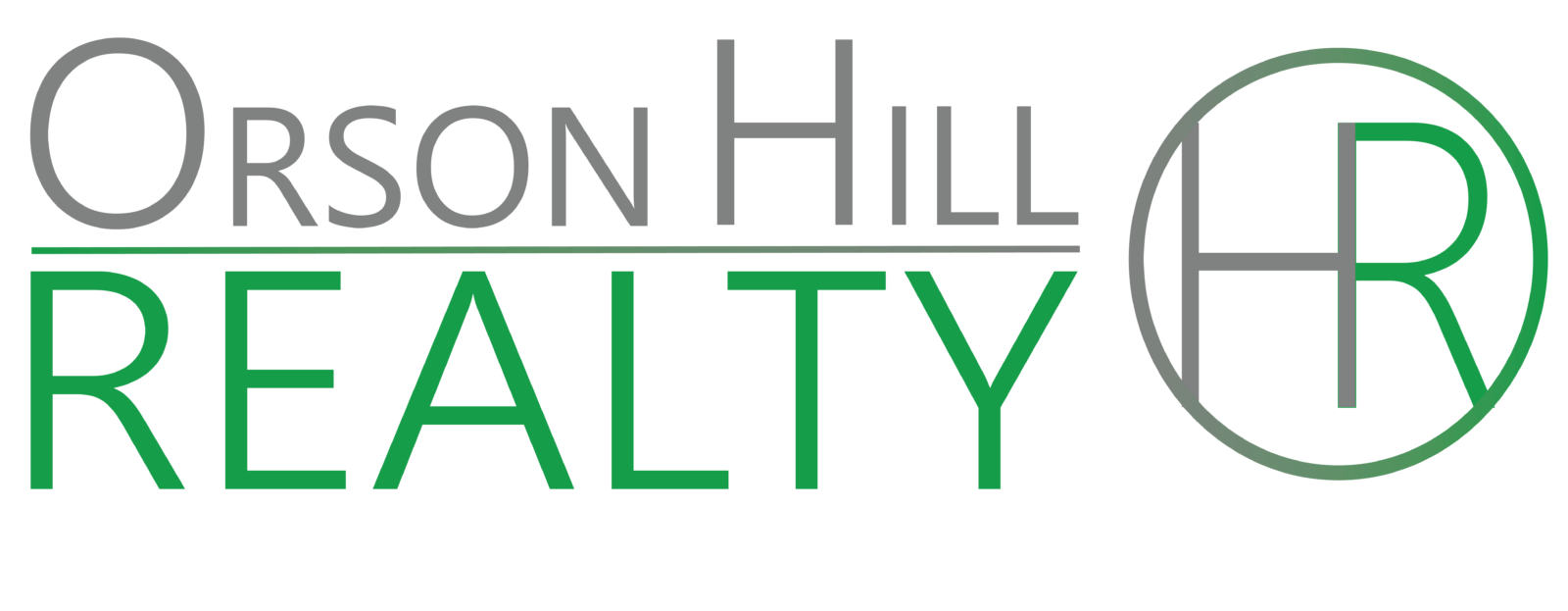
Appraisal: An estimation of a property’s value by a licensed appraiser.
Assessment: The valuation of a property for the purpose of taxation.
Amortization: The process of paying off a debt over time through regular payments.
Adjustable-Rate Mortgage (ARM): A mortgage with an interest rate that can change over time.
Broker: A person who acts as an intermediary between buyers and sellers.
Buyer’s Agent: A real estate agent who represents the buyer in a real estate transaction.
Closing: The final step in a real estate transaction where the title is transferred from the seller to the buyer.
Closing Costs: Expenses over and above the price of the property in a real estate transaction.
Comparative Market Analysis (CMA): An evaluation of similar, recently sold homes to determine the current value of a property.
Contingency: A condition that must be met for a real estate contract to become binding.
Deed: A legal document that grants ownership of a property.
Down Payment: The initial upfront portion of the total amount due.
Equity: The difference between the market value of a property and the amount the owner still owes on the mortgage.
Escrow: A neutral third party holds something of value during a transaction.
Fixed-Rate Mortgage: A mortgage with an interest rate that does not change over the life of the loan.
Foreclosure: The legal process by which a lender takes control of a property, evicts the homeowner, and sells the home after a homeowner is unable to make full principal and interest payments on his or her mortgage.
Home Inspection: An examination of a real estate property’s condition, usually performed by a professional home inspector.
Homeowner’s Association (HOA): An organization in a subdivision, planned community, or condominium that makes and enforces rules for the properties and its residents.
Listing: A written contract that gives a licensed real estate agent the exclusive right to sell a property for a specified time.
Loan-to-Value Ratio (LTV): A financial term used by lenders to express the ratio of a loan to the value of the purchased property.
Mortgage: A loan to finance the purchase of real estate.
Multiple Listing Service (MLS): A service used by a group of real estate brokers. They band together to create an MLS that allows each of them to see one another’s listings of properties for sale.
Pre-Approval Letter: A letter from a lender indicating that a borrower qualifies for a certain loan amount.
Principal: The amount of money originally borrowed in a loan.
Private Mortgage Insurance (PMI): An insurance policy that protects the lender if the borrower is unable to pay the mortgage.
Real Estate Agent: A professional who represents buyers and sellers in real estate transactions.
Real Estate Investment Trust (REIT): A company that owns, operates, or finances income-generating real estate.
Realtor: A real estate agent who is a member of the National Association of Realtors.
Refinancing: The process of obtaining a new mortgage in an effort to reduce monthly payments, lower interest rates, take cash out of your home for large purchases, or change mortgage companies.
Title Insurance: Insurance that protects the holder from loss sustained by defects in the title.
Underwriting: The process of evaluating aloan application to determine the risk involved for the lender. It involves an analysis of the borrower’s creditworthiness and the quality of the property itself.
Zoning: Government (usually municipal) laws that control the use of land within a jurisdiction.
Capital Gain: The profit from the sale of a property or an investment.
Depreciation: A decrease in the value of a property due to wear and tear or age.
Easement: The right to use another person’s land for a specific purpose.
Fair Market Value: The price that a property would sell for on the open market.
Gross Rent Multiplier: A ratio that is used in the real estate market to calculate the value of income-producing properties.
Joint Tenancy: A type of ownership where two or more people own a property together, with equal rights to enjoy the property.
Lien: A claim or charge on property for payment of some debt, obligation or duty.
Net Operating Income: The income generated by a property after operating expenses have been deducted, but before deducting taxes and interest payments.
Offer: A formal bid from the home buyer to the home seller to purchase a home.
Property Management: The administration of residential, commercial and/or industrial real estate.
Quitclaim Deed: A deed that transfers a person’s interest in a property without stating the nature of the person’s interest or rights, and with no warranties of ownership.
Real Estate Owned (REO): Property owned by a lender—usually a bank—after an unsuccessful sale at a foreclosure auction.
Short Sale: A sale of real estate in which the net proceeds from selling the property will fall short of the debts secured by liens against the property.
Tenancy in Common: A type of joint tenancy of property without right of survivorship; each co-tenant’s portion is distributable under a will.
Vacancy Rate: The percentage of all available units in a rental property that are vacant or unoccupied at a particular time.
Yield: The income return on an investment.
1031 Exchange: A swap of one investment property for another that allows capital gains taxes to be deferred.
Absorption Rate: The rate at which available homes are sold in a specific real estate market during a given time period.
Balloon Mortgage: A mortgage that has level monthly payments that will amortize it over a stated term but that provides for a lump sum payment to be due at the end of an earlier specified term.
Chain of Title: The history of all of the documents that transfer title to a parcel of real property, starting with the earliest existing document and ending with the most recent.
Double Net Lease: A lease agreement where the tenant is responsible for both property taxes and insurance.
Effective Gross Income: The total income generated by a property, including rent, after subtracting vacancy losses and adding income from other sources like laundry facilities.
FHA Loan: A loan insured by the Federal Housing Administration and made by an approved lender in accordance with the FHA’s regulations.
Gross Lease: A lease in which the landlord pays for all property charges usually included in ownership.
Interest-Only Loan: A loan where the borrower only pays the interest for a specified amount of time.
Lease Option: An agreement that gives a renter the choice to purchase a property during or at the end of the rental period.
Market Value: The highest estimated price that a buyer would pay and aseller would accept for an item in an open and competitive market.
Negative Amortization: An increase in the principal balance of a loan caused by making payments that fail to cover the interest due.
Origination Fee: A fee charged by a lender on entering into a loan agreement to cover the cost of processing the loan.
Prepayment Penalty: A clause in a mortgage contract that says if the mortgage is prepaid within a certain time period, a penalty will be assessed.
Rate Lock: A guarantee from a lender for a specific interest rate for a set period of time.
Single Net Lease: A lease agreement where the tenant pays for one of the property expenses along with the rent.
Triple Net Lease: A lease agreement where the tenant pays all the operating expenses of the property along with the rent.
Usury: Charging an interest rate on a loan that is higher than what is allowed by law.
Vendor Take-Back Mortgage: A type of mortgage where the seller offers to lend funds to the buyer to help facilitate the purchase of the property.
Wrap-Around Mortgage: A type of mortgage that includes the remaining balance on an existing mortgage and an additional amount requested by the borrower.
Zero Lot Line: A type of construction where a building is located right up to the edge of the property line.
Abstract of Title: A summary of the public records relating to the title to a particular piece of land.
Basis Point: One hundredth of one percent, used chiefly in expressing differences of interest rates.
Certificate of Occupancy: A document issued by a local government agency or building department certifying a building’s compliance with applicable building codes and other laws, and indicating it to be in a condition suitable for occupancy.
Due-on-Sale Clause: A provision in a mortgage or deed of trust that allows the lender to demand immediate payment of the balance of the mortgage if the mortgage holder sells the home.
Eminent Domain: The right of a government or its agent to expropriate private property for public use, with payment of compensation.
Fixture: An item of property so attached to real property that it may not be removed without damaging the property.
Graduated Payment Mortgage: A type of fixed-rate mortgage where the payments increase gradually from an initial low base level to a desired high end level.
Hazard Insurance: Insurance coverage that in the event of physical damage to a property from fire, wind, vandalism, or other hazards.
Joint Venture: A business arrangement in which two or more parties agree to pool their resources for the purpose of accomplishing a specific task.
Land Contract: A contract between a buyer and seller of real property in which the seller provides the buyer financing in the purchase, and the buyer repays the resulting loan in installments.
Mortgage Insurance Premium (MIP): The amount paid by a borrower for mortgage insurance, either to a government agency such as the Federal Housing Administration (FHA) or to a private mortgage insurance (PMI) company.
Nonconforming Loan: A loan that does not meet bank criteria for funding.
Owner Financing: A property purchase transaction in which the property seller provides all or part of the financing.
Plat: A map, drawn to scale, showing the divisions of a piece of land.
Real Estate Settlement Procedures Act (RESPA): A law protecting consumers from abuses during the residential real estate purchase and loan process by requiring lenders to disclose all settlement costs, practices, and relationships.
Survey:A precise measurement and report of the physical characteristics of a property, including its size, location, and the physical features.
Title Search: A detailed examination of the historical records concerning a property.
Underwater: A term used to describe a property that is worth less than the outstanding mortgage on it.
Variable Rate Mortgage: A type of mortgage in which the interest rate paid on the outstanding balance varies according to a specific benchmark.
Walkthrough: A final inspection of a property being sold by the potential buyer to ensure that all agreed upon repairs were made and that the property is in the agreed-upon condition.
Xeriscaping: A style of landscape design requiring little or no irrigation or other maintenance, used in arid regions.
Yield Spread Premium: The difference between the interest rate on a loan and the interest rate on a secondary market where the loan was sold.
Zestimate: An estimated market value for a home, computed using a proprietary formula. It is a starting point in determining a home’s value and is not an official appraisal.
Back-End Ratio: A ratio that indicates the proportion of income that goes toward paying all recurring debt payments, including those covered by the first mortgage, second mortgage, car loans, and credit cards.
Capital Improvement: A significant expenditure that extends the useful life of a property or adds to its value.
Deed-In-Lieu: A potential option taken by a mortgagor (a borrower) to avoid foreclosure under which the mortgagor deeds the collateral property (the home) back to the lender (the bank mortgagee) in exchange for the release of all obligations under the mortgage.
Escrow Account: An account in which a neutral third party holds the funds necessary to pay for various property expenses.
For Sale By Owner (FSBO): A method of selling property without the use of an agent or broker.
Home Equity Line of Credit (HELOC): A line of credit extended to a homeowner that uses the borrower’s home as collateral.
Investment Property: A property that is not occupied by the owner and is typically utilized for income production.
Leasehold Estate: An ownership interest in a property by a lessee for a specific period of time.



